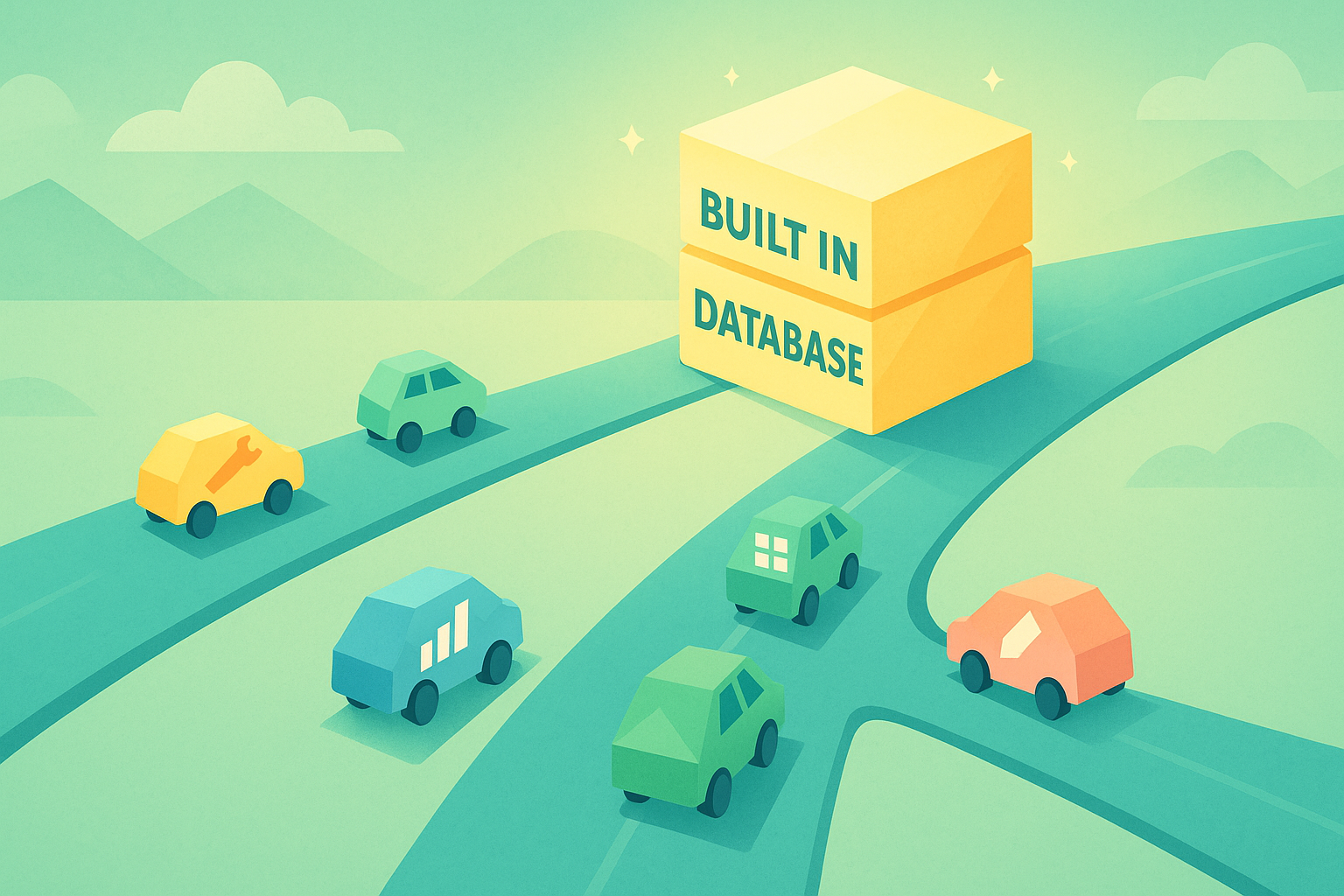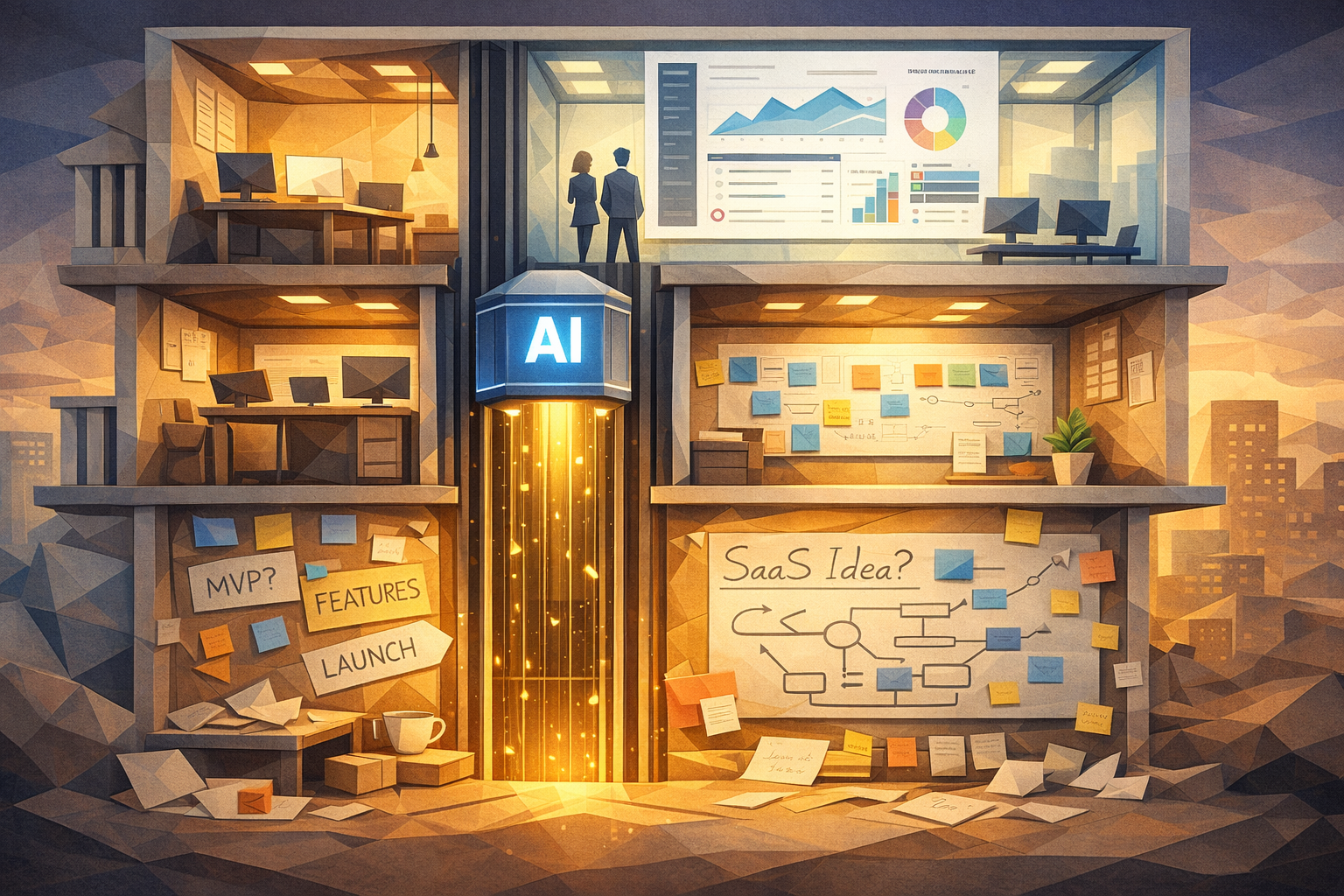Introduction
If you’re building an actual web app, not just a form, you’ll eventually run into one big question: “Where does the data go?”
Most no-code tools don’t help you here. They give you a pretty frontend and expect you to plug in Airtable, Firebase, or Supabase.
But some tools get it right: they come with a built-in database.
Here are 5 of the best options in 2025 for building full-stack apps without writing code.
1. JDoodle.ai - Full-stack AI app builder with built in database
Best for: Indie hackers, PMs, and startup teams shipping MVPs fast
JDoodle combines prompt logic, API integrations, a built-in database, and full-stack code generation. The database works behind the scenes to store user inputs and feed dynamic content into apps.
Key features:
- Built-in database with schema view
- Pay-as-you-go credits for usage-based pricing
- AI prompt builder
- External AI API integration (OpenAI, Gemini, etc.) when needed
Why it’s different: Most tools either give you a form or a table, not both working natively with AI and code. JDoodle also lets you plug in external AI services if your app requires more custom logic.
2. Tadabase - Enterprise-friendly builder with built-in backend
Best for: Internal tools, dashboards, and B2B workflows
Tadabase lets you create database-driven applications visually. Everything lives inside your workspace, including permissions, roles, and logic flows.
Key features:
- Role-based access controls
- Native database with app builder
- Custom workflows and conditional logic
Considerations: UI is more functional than flashy, but powerful under the hood.
3. Softr - Easy web apps with new Softr Database
Best for: Creators, educators, and quick client portals
Softr used to rely on Airtable, but now it has its own native database. You can build member dashboards, filtered directories, and forms directly tied to your data.
Key features:
- Softr Database (relational)
- Public and private app modes
- Easy component system for UIs
Considerations: Still catching up in flexibility compared to more mature tools.
4. AppSheet - Google’s take on no-code + data
Best for: Businesses already using Google Sheets or Workspace
AppSheet includes its own built-in data layer, but it shines when used with Google data. You define logic and forms visually and can deploy to mobile or web.
Key features:
- Built-in tables or use existing Sheets
- Native mobile support
- Automations and rule-based flows
Considerations: Less suited for public-facing apps. More focused on internal tools.
5. DronaHQ - No-code + low-code hybrid with built-in data tools
Best for: Teams building complex apps without starting from scratch
DronaHQ blends visual app building with built-in data tools, logic blocks, and API connectors. It’s closer to low-code than pure no-code, but still friendly to non-engineers.
Key features:
- Built-in database with formula fields
- Connectors to external APIs
- Visual logic and layout editor
Considerations: Slightly steeper learning curve.
Comparison Table
| Tool | Built-in DB | AI Support | External AI APIs | Public App Ready | Good for MVPs |
|---|---|---|---|---|---|
| JDoodle | ✅ Yes | ✅ Native | ✅ Yes | ✅ Yes | ✅✅✅ |
| Tadabase | ✅ Yes | ❌ None | ❌ No | ✅ Yes | ✅✅ |
| Softr | ✅ Yes | ❌ Basic | ❌ No | ✅ Yes | ✅✅ |
| AppSheet | ✅ Yes | ❌ Limited | ❌ No | ❌ Internal only | ✅ |
| DronaHQ | ✅ Yes | ❌ Limited | ✅ Yes | ✅ Yes | ✅✅ |
Final Thoughts
If you want to build and launch without backend complexity, your shortlist should start with one of these five.
For AI MVPs, JDoodle.ai is the only one that combines native prompt logic, external AI integrations, and a built-in database—all in one app builder.
Need to build fast, but don’t want to glue Firebase to a spreadsheet to a form to a prompt? Start free on JDoodle →
FAQ: Built-in Databases in No-Code App Builders
What is a built-in database in an app builder?
Answer: It’s a native data layer that lives inside your app builder, no external integrations or setup required. You can store user inputs, and trigger logic all within the same interface.
Why do built-in databases matter?
Answer: They reduce setup time, eliminate backend headaches, and let you ship faster. Especially useful for MVPs, internal tools, and AI-powered apps.
Are all no-code tools offering built-in databases?
Answer: No. Many no-code tools rely on external sources like Airtable or Google Sheets. Built-in databases are rarer and more powerful.
Does JDoodle.ai support external AI integrations like OpenAI or Gemini?
Answer: Yes. JDoodle supports native AI prompts and also allows integration with external APIs like OpenAI or Gemini if you need advanced capabilities inside your app, such as building a customer support chatbot.
Related Posts
View All Posts »How to Build a Website for a Makeup Artist in 11 Simple Steps
Learn how to build a clean makeup artist website that showcases your portfolio, lists services clearly, and helps clients book you easily, without needing technical skills.
How to Build a Website for a Gardener in 11 Simple Steps
Learn how to create a simple, professional gardening website that attracts local customers, showcases your work, and makes it easy to get enquiries, without needing technical skills.
How to Build Your SaaS MVP with an AI App Builder in 2026
A practical, step by step guide for founders, PMs, marketers, students, and indie hackers to ship a working SaaS MVP using an AI app builder with a built in database, without touching backend code or wrangling classic no code tools.





